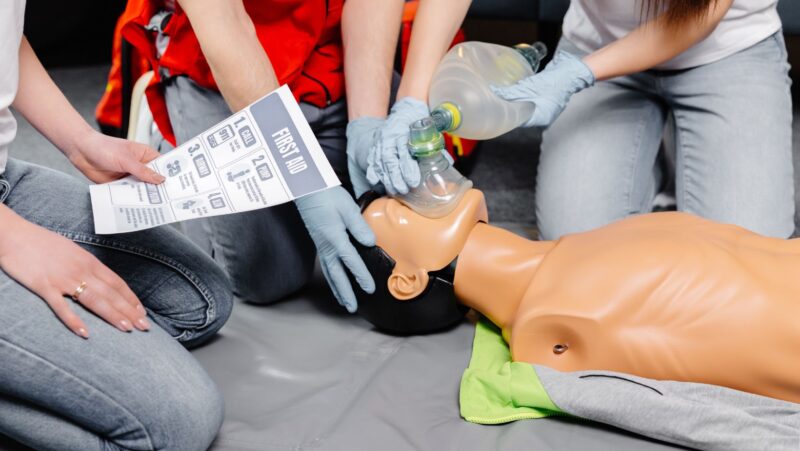
Are you ready to conquer the NCLEX through an online nursing program? Discover evidence-based strategies to master the exam, from leveraging digital tools to building resilience, and launch your nursing career with confidence.
Picture yourself facing the NCLEX, where every question challenges your ability to make life-saving decisions. For online nursing students, preparing for this critical exam while juggling coursework and personal responsibilities can seem daunting. Yet, with proven strategies, you can turn challenges into opportunities.
From cutting-edge digital tools to structured study plans, let’s dive into how you can excel in your online nursing program and pass the NCLEX, paving the way for a rewarding career in a field facing a critical need.
Start Your NCLEX Prep on Day One
The key to NCLEX success is starting preparation the moment you begin your online nursing program. Early engagement builds a strong foundation in core areas like pharmacology and patient safety, aligning with the exam’s focus on clinical judgment. Baylor University’s Distance Accelerated Bachelor of Science in Nursing (ABSN) integrates NCLEX prep into its curriculum, offering practice questions and simulations that mirror the exam’s format. In December 2023, 96% of Baylor’s ABSN students passed the NCLEX on their first attempt, showcasing the effectiveness of this approach.
Consider Elena, a single mother who began reviewing NCLEX-style questions in her first semester. By dedicating 30 minutes daily to practice, she mastered complex topics like medication administration. To replicate her success, create a study schedule—perhaps 50 practice questions daily—and track your progress using tools provided by your program. Early preparation ensures you’re ready to test immediately after graduation. How will you integrate NCLEX prep into your routine from the start?
Master the Next Generation NCLEX Format
The Next Generation NCLEX, launched in April 2023, emphasizes clinical judgment through diverse question types, including multiple-choice, drop-down cloze items and bowtie questions. With a minimum of 85 questions (including 15 unscored items) and a five-hour time limit, pacing is critical—aim for 1 to 2 minutes per question, as recommended by the National Council of State Boards of Nursing (NCSBN). Online programs prepare you by embedding these formats into coursework, helping you practice prioritizing care under time constraints.
Dr. Philip Dickison, Chief Operating Officer at NCSBN, notes, “Because clinical judgment underlies almost all of a nurse’s activities, it is of paramount importance to NCSBN. We need to measure it effectively to safeguard public protection”. For example, a bowtie question might ask you to identify risk factors and interventions for a patient with chest pain, simulating real clinical scenarios. Key NCLEX question types to practice include:
- Multiple-choice: Tests foundational knowledge, like identifying a medication’s side effects.
- Bowtie questions: Assess clinical judgment by mapping patient care steps.
- Drop-down cloze items: Evaluate comprehension through context-based scenarios.
Practice with sample questions weekly, focusing on high-priority topics like infection control. Which NCLEX question types will you prioritize in your study plan?
Harness Analytics for Personalized NCLEX Prep
Digital tools transform NCLEX preparation by offering personalized feedback to address your unique needs. Platforms like UWorld and Kaplan provide question banks that mimic the NCLEX’s computer-adaptive format, adjusting difficulty based on your performance.
Baylor’s ABSN program incorporates Health Education Systems Incorporated (HESI) exams, with the HESI Exit Exam’s 150 questions serving as a reliable predictor of NCLEX success. A 2022 study published in the Journal of Professional Nursing found that students with an average HESI Exit Exam score of 900 or higher had a 97.29% first-time NCLEX-RN pass rate.
Imagine using a platform that flags your weakness in pediatric nursing and generates targeted quizzes to improve your skills. For instance, Michael, a student, used UWorld’s performance reports to boost his pharmacology scores by 20%. Select a tool that matches your learning style—try free trials from providers like Kaplan or Hurst Review. These tools provide simulated exams to replicate test-day conditions, detailed analytics to pinpoint strengths and weaknesses and customized study plans to focus on high-yield topics. Which digital resource will you incorporate into your prep?
Build Confidence Through Clinical Experiences
Clinical experiences are vital for NCLEX success, and online programs like Baylor’s ABSN deliver through 720 hours of rotations in settings like medical-surgical units, a key NCLEX focus. Faculty mentorship during these rotations helps you apply theoretical knowledge to real-world scenarios, such as managing a patient with diabetes. Baylor’s staff also handle clinical placement logistics, freeing you to focus on building competencies.
Take Sarah, who gained confidence by practicing IV insertions during clinicals, directly applying skills tested on the NCLEX. The 2014 NCSBN National Simulation Study found that replacing up to 50% of traditional clinical hours with high-quality simulation experiences resulted in comparable outcomes in students’ preparedness for clinical practice, supporting NCLEX readiness. To maximize your clinicals, seek feedback from preceptors and reflect on each patient interaction. Take a moment to identify one clinical skill you want to master—how will you seek opportunities to practice it?
Collaborate and Stay Resilient for Success
Peer collaboration and mental resilience are critical for NCLEX preparation. Baylor’s ABSN fosters this through regional study groups, where you can engage in asynchronous activities like case study discussions or group quizzes. These interactions build a support network, helping you clarify complex topics like dosage calculations. Meanwhile, managing test anxiety is essential—regular HESI practice exams familiarize you with the NCLEX format, reducing stress on test day.
Try these strategies:
- Join study groups: Collaborate with peers to review NCLEX test plans.
- Practice mindfulness: Use 5-minute meditation sessions to stay calm.
- Simulate test conditions: Take timed practice exams to build stamina.
Dr. Michelle Moulton, Senior Manager at the National League for Nursing, notes, “The opportunity for learners to practice and receive feedback on these high-level skills is critical for the new NCLEX but is also an invaluable bridge to their nursing practice”.
Reflect on Anna, who reduced test anxiety through weekly study group sessions and mindfulness, scoring 950 on her HESI Exit Exam. Research shows that regular collaboration reduces test anxiety for nursing students. How will you balance collaboration and self-care to stay NCLEX-ready?
Your Path to a Rewarding Nursing Career
With Texas’s nurse shortage—30,000 today, projected to double by 2032—your NCLEX success can help address this critical need, offering a rewarding career with an average RN salary of $90,210. By starting prep early, mastering the exam’s format, harnessing analytics, excelling in clinicals and staying resilient through collaboration, you’re poised for success. Online nursing programs provide the structure and support to make this achievable, helping you balance a busy life.
As you embark on this journey, consider what drives your passion for nursing. Will you harness these strategies to not only pass the NCLEX but also make a meaningful impact in healthcare? Your future patients are waiting for you to step up.














